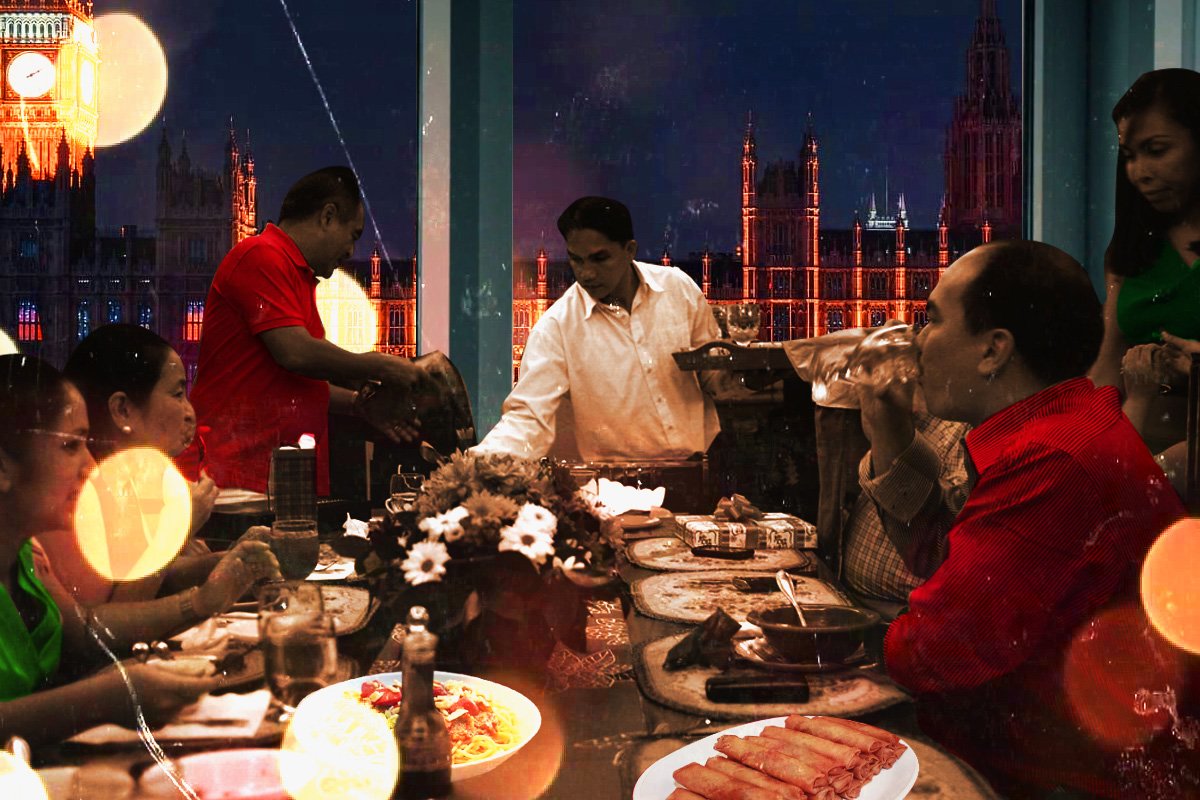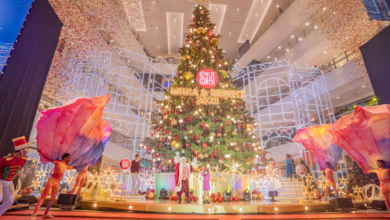
Paskong Pinoy: Christmas in our Hearts
Filipinos are everywhere in the world, and we take a piece of home anywhere we go. Culture is something that transcends the physical location, and for Filipinos, the tradition of Christmas that binds us as a people serves as both reminder and inspiration to many who live abroad.
It is well-known that Christmas remains to be very big deal for most Filipinos. Christmas decorations go up as early as September, carols fill the air, and once December starts, Filipino Christmas is in full swing. Christmas lights and parols light up the smallest of side streets to the biggest of avenues, sparkling and dazzling. Gatherings, left and right, overflow with food, drinks, laughter, and conversations.
Simbang Gabi is also a big part of Christmas for Filipinos. Originally introduced by Spanish Friars to allow farmers to hear mass at dawn before going to the fields, we have adapted it and made it truly our own. At the heart of it all, it is a gathering, a celebration, of remembering the reason for the season – the birth of Christ, our Savior. But beyond that, for Filipinos, it is an expression of unity as a community, of slowing down at the end of the year, and spending 9 days/nights with family and friends, of partaking in bibingka and puto bumbong and stories of the year coming to a close.
But what really unites us this season is the Noche Buena – after the last mass of the Simbang Gabi, on Christmas Eve, we gather and have dinner and more conversations, spending the first few minutes of Christmas Day together. We all have our different ways of celebrating it, but there are a few commonalities about this night that all Filipinos can relate to.
It is usually spent at a relative whose house is the biggest; it is potluck, and you are expected to bring your house’s specialty dish – maybe it is fruit salad, buko salad, hamon, lechon, but honestly it could be anything – sushi, carbonara, paella, kaldereta, callos, or lengua; you wait until 12:00 a.m., and then everyone gathers to exchange and open gifts; children are running around way past their bedtime, the karaoke is going full blast, the titos are drinking, the titas are sharing cake and stories, and everyone is just generally content, happy, and thankful.
This is our image of Christmas – one of churches and dawn masses, of conversations over bibingka and tsokolate, of Christmas Parties and Monito Monita, of Christmas Trees, parols, and flashing lights, of Noche Buena – it is home, it is family, and it is the Filipino spirit encapsulated in a season. Ano matter where we are in the world, we take this general consensus of what Christmas should be, and we make the most of the circumstances we have.
Each part of the world has its own special way of celebrating the holidays – some are as extravagant as the Philippines, with the lights and holiday sales and all the food and celebration. But for many, it’s not quite the same.
Christmas for OFWs
It may come as a surprise for us who are big Christmas-celebrators, but for some parts of the world, it is a normal day. If it’s a weekday, you go to work, go home, maybe cook dinner or get some takeout, maybe watch an episode or two of a TV series, get some sleep, wake up, go to work again. Normal, uneventful, routinary. No festivities, no merry-making.
In an effort to be more politically correct, you even avoid greeting people “Merry Christmas” – “Happy Holidays” is more inclusive. That’s well and good, and respect for each other’s beliefs is important, but for a Filipino who grew up in the Philippines and is now living abroad, there is nothing more alienating. December is Christmas – Christmas Parties, Christmas Ham, Christmas Carols, Christmas Mass, Christmas Gifts, Christmas Cheer.
For a lot of OFWs, this feeling of alienation is exacerbated during the holidays. A lot are abroad because of work, and the holidays mean double pay, so it’s just another day at the office. On Christmas Eve, they go online and see their loved ones back home, and there is no greater contrast than that – a family gathering, full of laughter and cheer, versus an individual smiling at a screen, trying to hold back the homesickness.
It is jarring, yes, but it is hopeful – no matter the reason why a Filipino leaves the country, we are forever connected by that spirit of community, which is amplified during the Christmas season. It is this image of Christmas, this tradition, that reminds our fellow Filipinos living abroad of what it means to be a part of something bigger, of a people full of smiles and hope and love. It is this image of Christmas that inspires them to go on and work towards a better future.
Us Filipinos, we bring our Christmas wherever we go. Wherever there are Filipino communities, you will see a semblance of it, no matter how removed that host country is from the celebration of Christmas.
There are Simbang Gabi, for the communities big enough that a congregation of Filipino Catholics gather. Maybe a tita knows how to make bibingka; maybe someone knows someone who sent authentic tablea, and it just so happens that a tito has a batirol perfect to make tsokolate with. It might be the middle of winter or summer where they are, but the image of a community bonding after celebrating mass, sharing food and drink and conversation, is present.
Their families might be halfway around the world, but maybe they have a colleague, or a classmate, who’s as homesick as they are. Maybe the closest Filipino restaurant is an hour’s subway ride away, but they go to it anyway, because it’s Christmas Eve and they have to have something familiar. And when they get there, the kuya is really nice, and they get free pan de sal, and despite not knowing anyone, they are happy because everyone is speaking Filipino and tonight, this is their Noche Buena.
It could even be a “Seasonal Event”, where you invite your co-workers and your friends to what you now call your home, but all your Filipino friends know that it is a Christmas Party. It’s potluck, you announce, but when they get there, there’s already a lot of food on the table. Your colleagues are excited because they love your famous lumpia, and your Filipino friends are impressed because you drove two hours just to get the right soy sauce for the adobo.
In the immortal words of the great Jose Mari Chan:
“Wherever there are people, giving gifts, exchanging cards,
I believe that Christmas, is truly in their hearts.”
Different stories, different countries, but one thing in common – Christmas is a season for community, of sharing and being thankful, of gathering to enjoy each other’s company. For us Filipinos, Christmas is in our hearts. We could be miles away from each other, but the spirit of Christmas is what binds us in this season, what keeps us happy and thankful for the year that has been, and what makes us look forward to the years to come.




